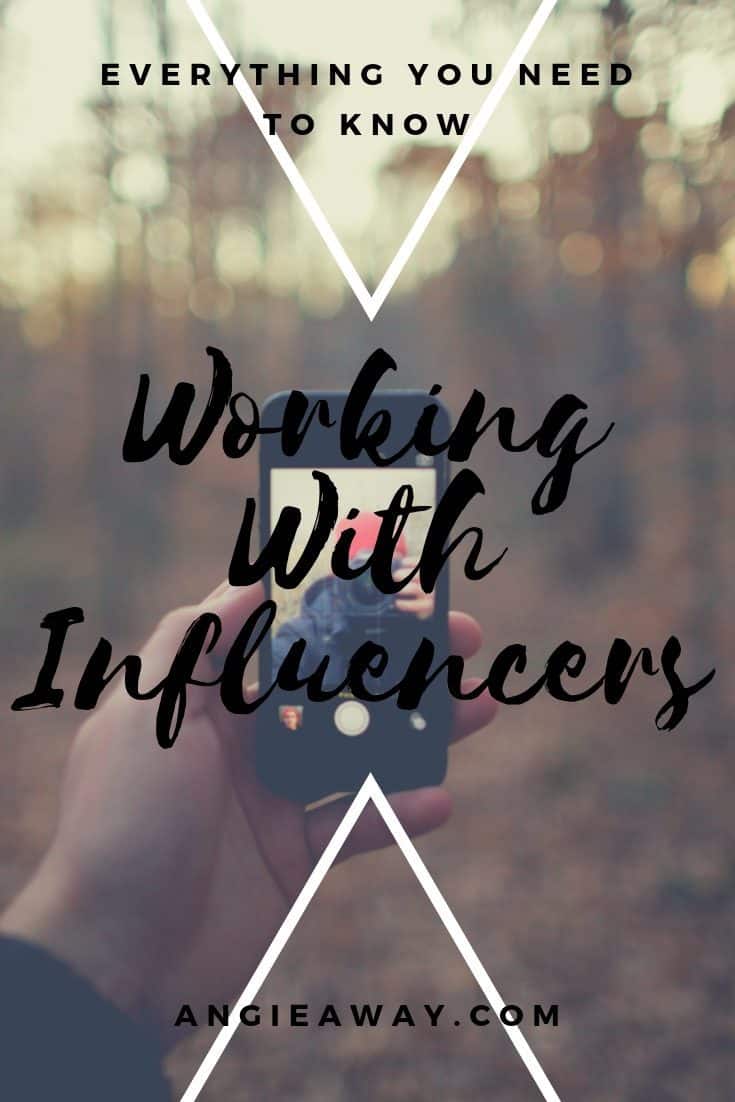As a publicist who runs influencer programs for high-profile brands and destinations, and an influencer who has been a brand ambassador for AFAR, Yahoo Travel, Rocky Mountaineer and Travelocity, I’ve got a behind-the-scenes look at both sides of this curious relationship. I get so many questions from marketers on this topic, I thought I’d share some top-line wisdom here. If you have more specific questions, feel free to ask away in the comments!
The question I am asked most often isn’t about influencer programs. No, it’s much simpler than all that.
Aren’t Influencers Just Millennials Who Are Afraid of Real Jobs?
First of all, no.
Second of all, get the heck out of here.
At the moment, influencer is kind of a dirty word, isn’t it? I certainly don’t identify as one away from the industry water cooler. I’m not telling the cashier at Target that’s what I do for a living. There’s nothing wrong with the job, but scandals like the Elle Darby drama in Dublin and Logan Paul and his suicide forest incident can reflect poorly on a career path that has loosely defined roles and boundaries in the first place.
What is an influencer? Influencer is a catch-all term for content creators who have the ability to influence the preferences and purchasing decisions of their audiences.
An influencer can be a YouTube vlogger, a long-form content blogger, an Instagram story maker bikini model or a snarky Twitter pundit. Or any imaginable combination therein. There are influencers in my sphere that work as hard as anyone I know. There are some who are sort of coasting along on good looks and luck. (Sounds a lot like every other industry I’ve ever worked in!)
From my PR perch, I don’t have much use for influencers who are only hot on one platform. That’s right, Insta-famous folks with your toned buns / cute puns. Every social network has its day, and Instagram has been hogging up the limelight for a while. But that’ll likely change in a couple years, just like Facebook and Twitter and Snapchat.
Think I’m kidding? How’s your MySpace page doing?
If I’ve learned anything in my dozen+ years as a blogger, it’s that social networks ebb and flow, so it pays, literally and figuratively, to be a multi-platform influencer who knows how to take one trip and turn it into content that is both appropriate and algorithmically sensible for multiple networks.
It makes much more sense to cast a wide net and reach a variety of fans on Facebook, Twitter, Instagram, Pinterest and beyond. If your one talent is looking good on Instagram, that is just not worth a longterm partnership. Not in my book, anyhow.
Brand ambassadors used to be celebrities and high profile types paid to align themselves with a brand. That doesn’t work as well as it used to, because consumers care about authenticity more than ever. Hence, the rise of the planet of the bloggers. Today’s most trusted brand ambassadors are real people, ideally with an authentic connection to the brand.
I know it’s not like this for every professional content creator, because I see the regurgitated press releases and word-for-word talking points in blogs and on Instagram every day, but when I work as a brand ambassador, I want to align with the brand in an organic way. I’m not shouting a press release at my audience. I’m incorporating the brand’s news into my world in a way that makes sense.
Pretending to like a product or a destination for a paycheck might be tempting, especially for those just starting out, but nothing cheapens your word more. And as an influencer, that’s just about all you’ve got. (And a super tanned butt, of course.)
When I change hats and hire influencers on behalf of my clients, the best ones are great at coming up with messaging that makes the most sense for their audiences. They’re influential for a reason, right?
If you’re hiring folks who can’t take a corporate message and translate it in a compelling way for their followers, they might not be influencers after all.
Loyalty and trust with an audience is something that can’t be quantified. And I guarantee, every influencer will produce different results. But that’s the fun of it. I love bringing a handful of folks to a new destination and seeing how they interpret it and then share it so differently – in a way perhaps the brand couldn’t do just using traditional media avenues.
The bottom line is that consumers trust influencers more than celebrity spokespeople, brands, journalists and politicians and only a little less than friends and family. That’s why influencer marketing is hot and why every client is yammering on about getting involved in the INFLUENCER SPACE. Even if they don’t know what it means. We’ll get to that.
So What is A Brand Ambassador?
An ambassador is a compensated* advocate who works in conjunction with a company to share the brand’s message.
*Did ya hear that, brands? Sending a bottle of shampoo to a blogger does not mean you get free Instagram stories for the rest of time.
What Does a Brand Ambassador Do:
- Create interesting content (preferably on more than one platform)
- Have a professional media kit
- Know what their USP is
- Align organically with your brand
- Have good reach AND demonstrated communication skills
Why Should I Use My Marketing Budget on a Brand Ambassador Campaign / Program?
Long term brand ambassador programs are a great way to connect with potential new customers in an authentic way. For those influencers with dedicated followers, it makes sense to engage their readers over time. It truly makes a difference in retention of brand messaging.
It’s also way cheaper than a Super Bowl commercial, and if done well, can reach almost as many people.
A quality brand ambassador program isn’t:
- Guaranteed positive coverage
- Free publicity / advertising
- Something an intern can manage
Remember 10 years ago when interns and temps were put in charge of brand Twitter accounts? And now entire agencies and departments are in charge of managing social media on behalf of brands? I can only hope the influencer marketing space moves further in this direction. It’s every bit as important a piece of the marketing/PR pie as traditional media, and I am always surprised when brands fail to recognize that. They will, eventually, but the ones doing it now are winning and the others will have to play catch up.
As part of a brand ambassador campaign, a professional brand manager will:
- Give direction, but allow freedom to create
- Not take advantage of your goodwill
- Respect the scope of work and agreement
- Compensate quickly and fairly
Remember, whoever is in charge of your partnership is the face of the brand to the influencers. And since they become the public face of the company, if the internal contact is an unprofessional tyrant, a liar or a disrespectful drunk who berates ambassadors in front of hotel employees, you’ve got yourself a huge problem. The ambassador program will be a hot mess and the stories will get out. You’d be amazed how small this industry is!
How Do I Compensate Brand Ambassadors?
Shouldn’t they be happy to receive free product or a free hotel stay in exchange for their good opinion? Oh, bless your heart.
Everything needs to be a 3-way win. A win for the brand, a win for the brand ambassador and a win for the audience. If it’s not a fit, the content will not resonate and the audience will be turned off.
- Cash. My personal favorite.
- Trade value. This could include travel, product or experiences, but the value had better be commensurate with the content you’re requiring. Hook me up with a car or a trip to Antarctica and we’ll talk about a trade. A tube of lipstick or free socks is not going to pay for my chai lattes. Content creators who work for big brands for free are doing themselves a disservice on so many levels. One, other brands see they work for free and know they don’t have to pay them. And two, well, they aren’t making money.
- Affiliate sales/commission. For influencers with high traffic, this can be a great way to partner. As it’s not a guaranteed compensation source, this is best used in conjunction with one or both of the above options.
Who Should Run My Blogger Ambassador / Influencer Program?
ME.
Just kidding. Sort of.
As with just about everything else in this burgeoning influencer/blogger/digital industry, there’s no official guidebook on how to develop successful ambassador programs. This is one reason I recommend working with someone who’s had experience on both sides of the fence. The best ambassador programs, influencer campaigns and blogger experiences are created when you utilize the expertise and experience of folks who’ve done it before. I’ve worked with brands who literally wouldn’t know a blogger from a traditional journalist from YouTuber from a hole in the ground. And all those folks have unique needs to create quality content that resonates with their highly valuable audience. (Well, except the hole in the ground.)
Point is, if you’re a brand and you want to dip a toe into the influencer world, hiring an influencer or consultant to help you navigate is a genius way to go from A to Z without having to reinvent the wheel. Or embarrass yourself. Or waste heaps of money.
I could (and likely will) write a book on this topic, so before I spend the rest of my limited time at home doing so, I’ll leave you with a few parting thoughts.
- So many marketers and publicists see disappointing results when working with content creators, and it almost always comes down to not understanding HOW to work with this group and not doing the research on the front end.
- Beware working with brands who don’t quite grasp what bloggers and influencers really do within the parameters of a brand ambassador program. You could end up in a situation (similar to Elle Darby or my destination wedding disaster) where the marketing contact thinks you’re just asking for freebies or offering to write nice things for money. That’s not the point of content creation, and it’s hard to explain that to marketers of the old guard.
- Influencers aren’t responsible for KPIs unless they’re specifically outlined in a contract. I once worked with a company I loved on a long term brand ambassador partnership and two years in the manager started demanding we hit sales goals. Only one problem – I didn’t know anything about the goals. I was hired to write articles, end of story, and found it impossible to please the brand manager once the goal posts moved.
- Beware those who think a brand ambassador program is the same thing as a free/cheap content farm. Every brand wants to be in the influencer space, but few know how to do it right. So look out for those brands offering an ambassador program that’s really just a cheap way for them to get quality content from you for their own website. Instagram is filled with clothing brands offering up ambassador gigs that are anything but valuable to content creators.
Some unique brand ambassador campaigns to check out:
- Universal’s Blog Squad (full disclosure – this one is mine!)
- Lululemon
- Best Buy Blogger Network
Pin Me For Later!

